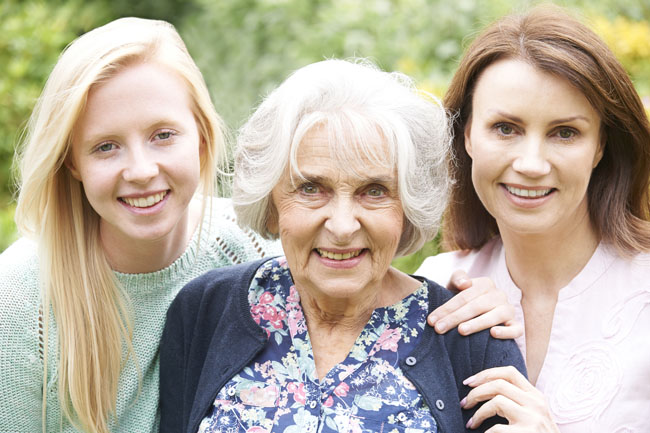Tips for Transitioning a Loved One to Senior Assisted Living
Helping an aging parent transition to assisted living can be challenging. Many seniors fear this change and with good reason. Many of them in their generation think of assisted living as places where seniors get put away. This is a tough situation for families and it can be difficult determining the best senior assisted living residence for a loved one. Consider the following tips as you select senior assisted living for your loved one and help them make the transition.

Determine What Level of Care is Needed?
In many cases the Senior is no longer able to live on their own but they don’t need full-time skilled nursing care. Therefore, it is important to determine what level of care is needed. Ask yourself the following questions to get a feel for what the needs will be. Understanding your loved one’s care needs will help you understand the costs associated with care and if a home is the right fit for your loved one.
- Can your loved one get out of bed in the morning?
- Are they able to dress themselves?
- Can they feed themselves?
- Do they need assistance with their medications?
- Do they need assistance with bathing?
- Are there any special routines that they will need assistance with?
Special assisted living residences are often a good option for families. They offer the support an individual needs but still can provide a home like setting. Residents have independence in the assisted living community but also know that support services are available if needed. Studies show that the best senior living environments are set up to be more home-like.
Help Decide What is Best For Your Loved One?
It can be hard to think about what makes the most sense for your loved one and put your personal thoughts, desires, and opinions to the side, yet this is a critical piece in the transition. The decision you are making for mom or dad needs to be based on what will work best for them, not for you. Many services or options that a family might think are important, may not be important to a resident. Try not to focus on what you would prefer but think about what mom or dad would prefer. Really listen to their opinion.
Accept their Fear
This transition may be bumpy. It is natural to be fearful when leaving your home so accept this fear as your loved one faces it. Realize that they may fear that they will lose many things they enjoy like their neighbors, their routine, even their independence. They may worry that family members will not visit frequently. It can be scary to face all of the new faces in their new home. Be prepared to be patient and understanding as your loved one faces all of these fears. Remember, many times fear leads to frustrations and many times these frustrations can be directed at you.
If you are struggling with the transition to senior living contact us today! We can help share some tips and stories of helping to make the transition.
